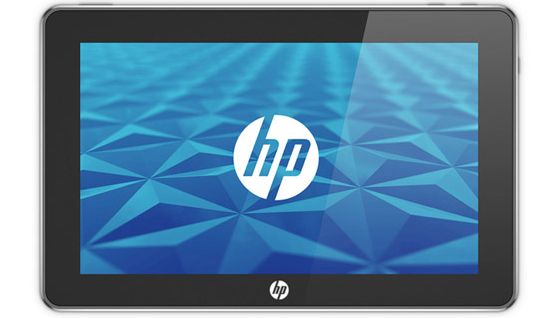

Hewlett-Packard is expected to soon introduce a tablet running WebOS, as well as a smartphone. But a netbook? According to a 17 January report from Ars Technica, netbooks are among the planned HP devices that will not only run its prized new mobile OS but seamlessly interact.
HP reportedly includes netbooks in a discovered set of training materials that it developed to help educate its mobile carriers’ salespeople, according to the tech site.
“One of the advantages of WebOS that is briefly highlighted in the training is the platform’s ability to run on multiple devices that can easily communicate with each other over the Internet,” writes Ars Technica. “The specific form factors listed in the training are phones, tablets and netbooks.”
On 5 January HP sent out invitations to members of the press, inviting them to an event on 9 February. Besides including a WebOS announcement, the invitation offered few details about the event, beyond the a teaser line: “Think big. Think small. Think beyond.” This prompted speculation that HP perhaps planned to show off tablets of various sizes, or additionally a number of form factors.
Speaking to CNBC interviewer Maria Bartiromo at the 2011 Consumer Electronics Show on 7 January, HP Executive Vice President Todd Bradley confirmed that a variety of WebOS-running form factors were planned – at one point even seeming to suggest that a television was in the works.
“It’s the only true multitasking operating system, where you actually can have 20 different applications open simultaneously,” Bradley told Bartiromo. “So as we think about how that enables everything from smartphones tablets to PCs to potentially other large-screen devices” – and here he spread his hands apart quite wide – “we see an enormous opportunity for both ourselves and our customers to get the best web experience, the best content experience, that they can.”
Bradley added that WebOS was HP’s “strategic reason” for its $1.2 billion (£750m) purchase of smartphone maker Palm in mid-2010 – a fact that HP has made no secret of. In a 1 July, 2010 statement announcing the completion of the acquisition, Bradley said the purchase would enable Palm to “participate more aggressively in the highly profitable, $100bn smartphone and connected mobile devices markets”. He added that with WebOS, HP planned to deliver “a unique and compelling experience across smartphones and other products”.
These products, however, have been slower to come to market than expected, and even as late as December 2010, Jon Rubinstein, the former chief executive of Palm, and the man now in charge of the Palm brand for HP, would only offer a vague “early 2011” as a time frame. Since HP first hinted at a fleet of WebOS-running devices, a number of competitors have already introduced tablets – including, most notably, Samsung.
By Bradley’s count, 96 tablets were on display at CES, which prompted Bartiromo to suggest that a lot of vendors were “playing catch-up to the Apple iPad” – the device that created the media tablet market – and ask how HP planned to compete.
“You and I will talk about that on the 9th,” answered Bradley.
American space agency prepares for testing of Boeing's Starliner, to ensure it has two space…
As UK and Europe develop closer military ties, European Commission says it will invest €1.3…
Zuckerberg seeks to revive Facebook's original spirit, as Meta launches Facebook Friends tab, so users…
Notable development for Meta, after appeal against 2021 WhatsApp privacy fine is backed by advisor…
First sign of shake-up under new CEO Lip-Bu Tan? Three Intel board members confirm they…
Trump's nominee for SEC Chairman, Paul Atkins, has pledged a “rational, coherent, and principled approach”…